Performance Management: Multiple Choice Questions and Analysis
VerifiedAdded on 2020/03/28
|10
|856
|123
Homework Assignment
AI Summary
This assignment is a quiz focused on performance management principles. It includes multiple-choice questions covering various perceptual errors such as leniency, halo, central tendency, and contrast effects. The quiz also explores the concept of 360-degree feedback, its process, and its impact on employee development. The questions assess understanding of how managers can minimize bias in evaluations and the importance of accurate feedback for performance improvement. The document also briefly discusses the outcomes and potential challenges associated with 360-degree feedback, such as unwillingness to provide honest feedback and the impact of competitive environments. This quiz is designed to help students understand and apply key concepts in performance management.
1 out of 10
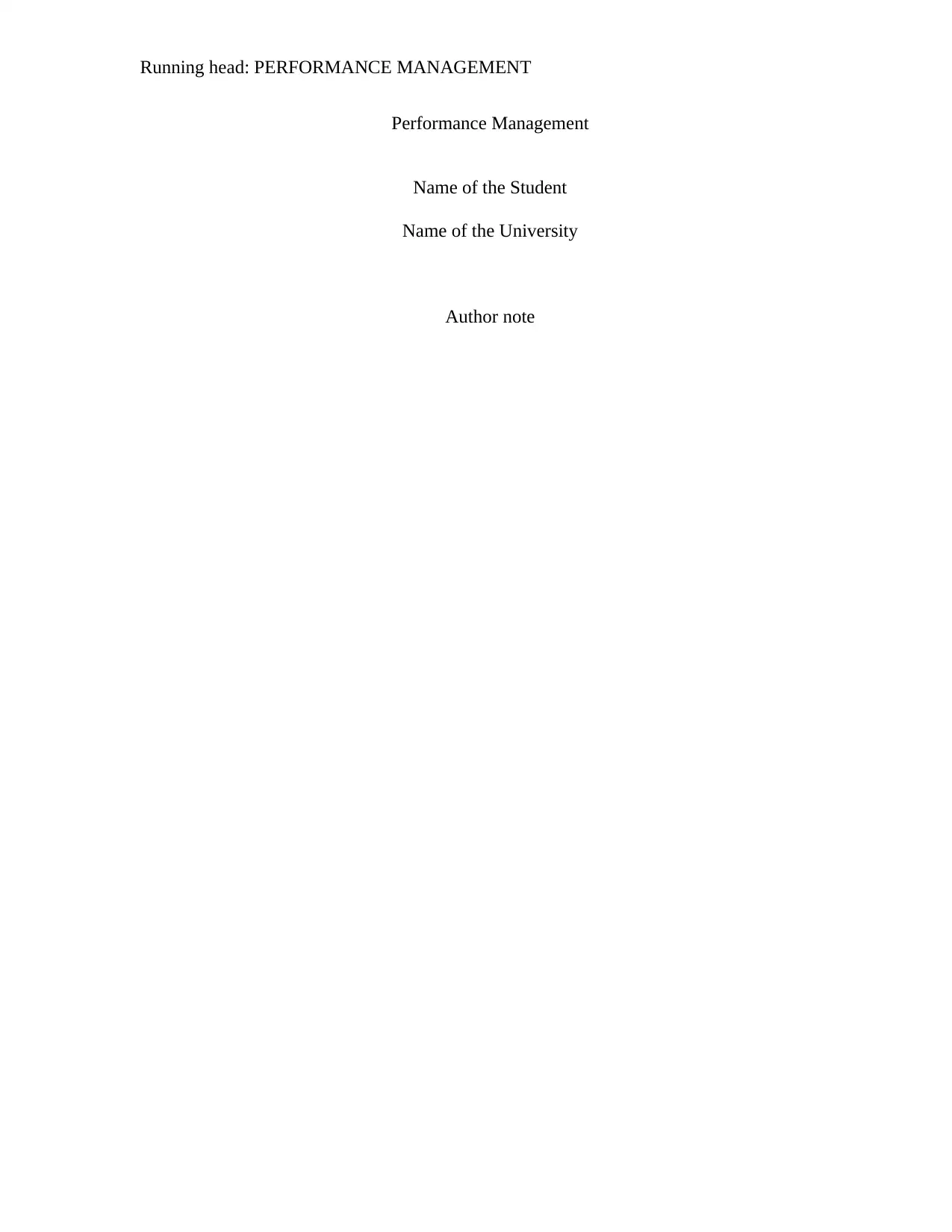
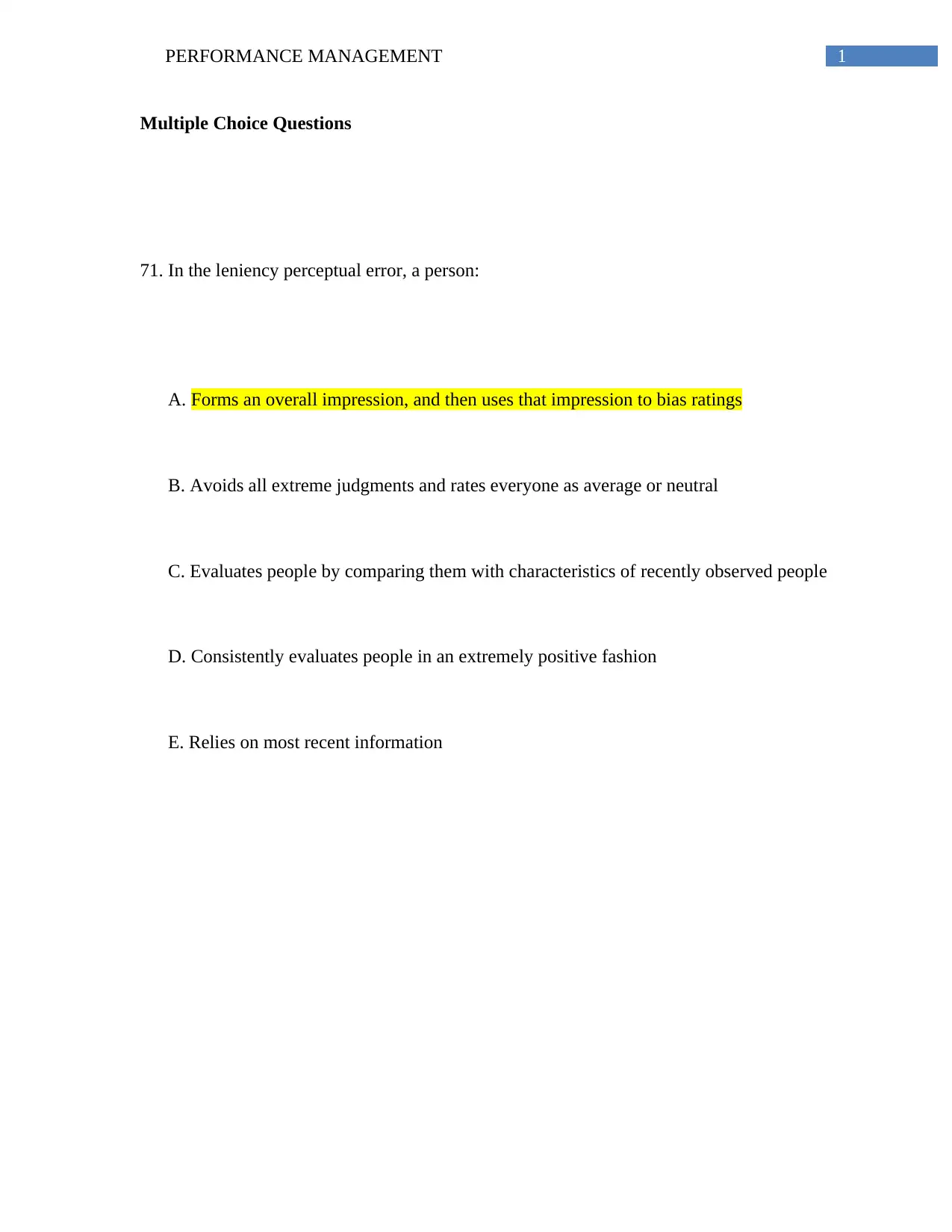
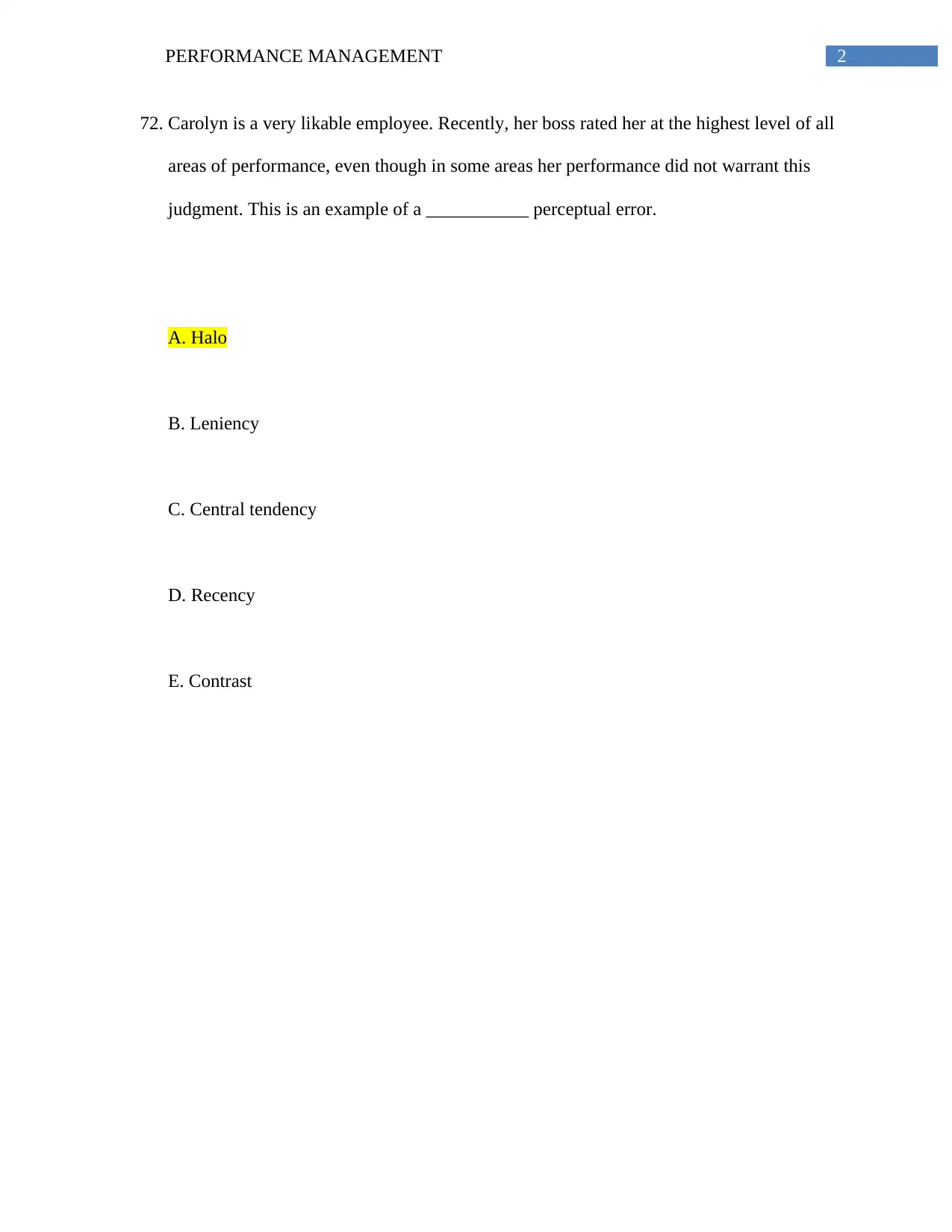

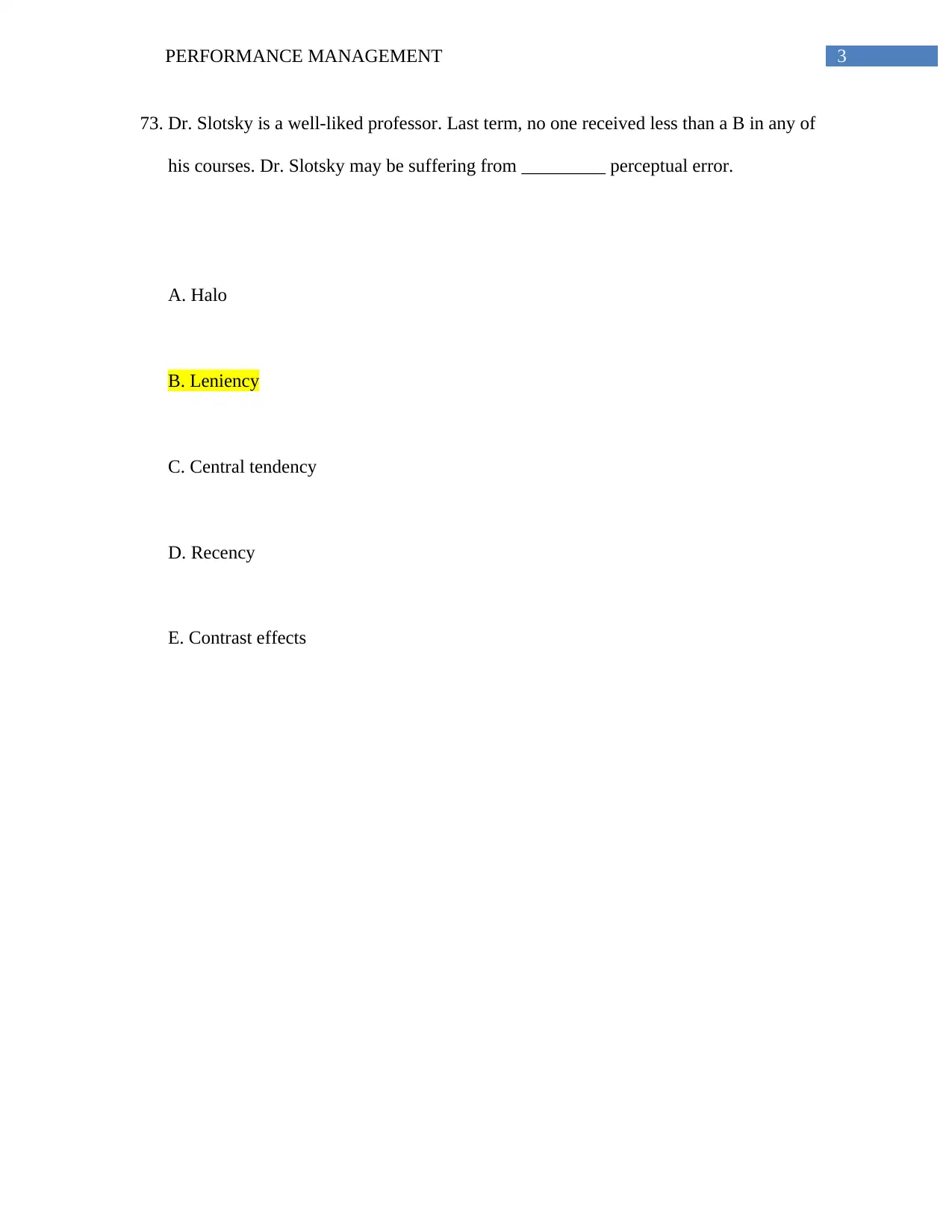
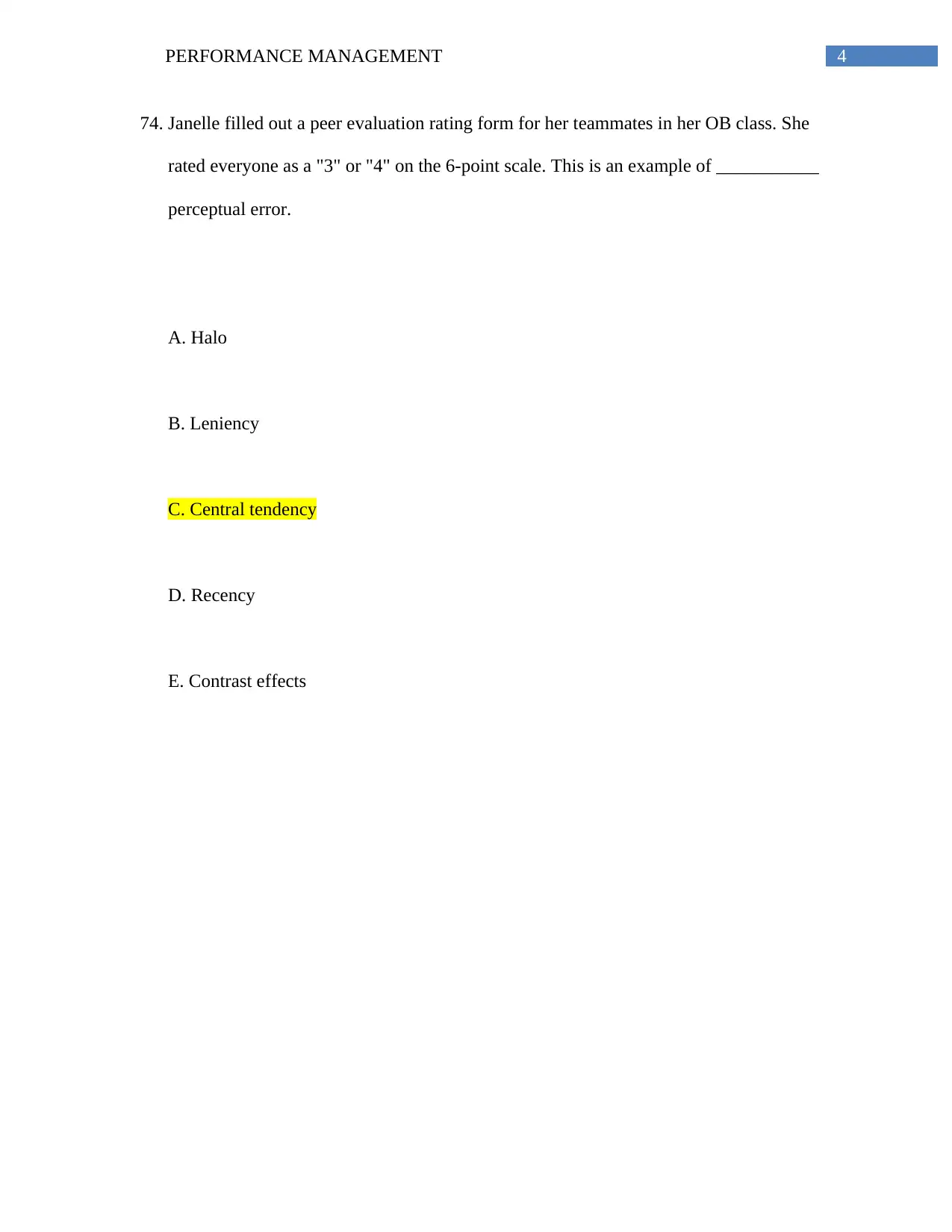
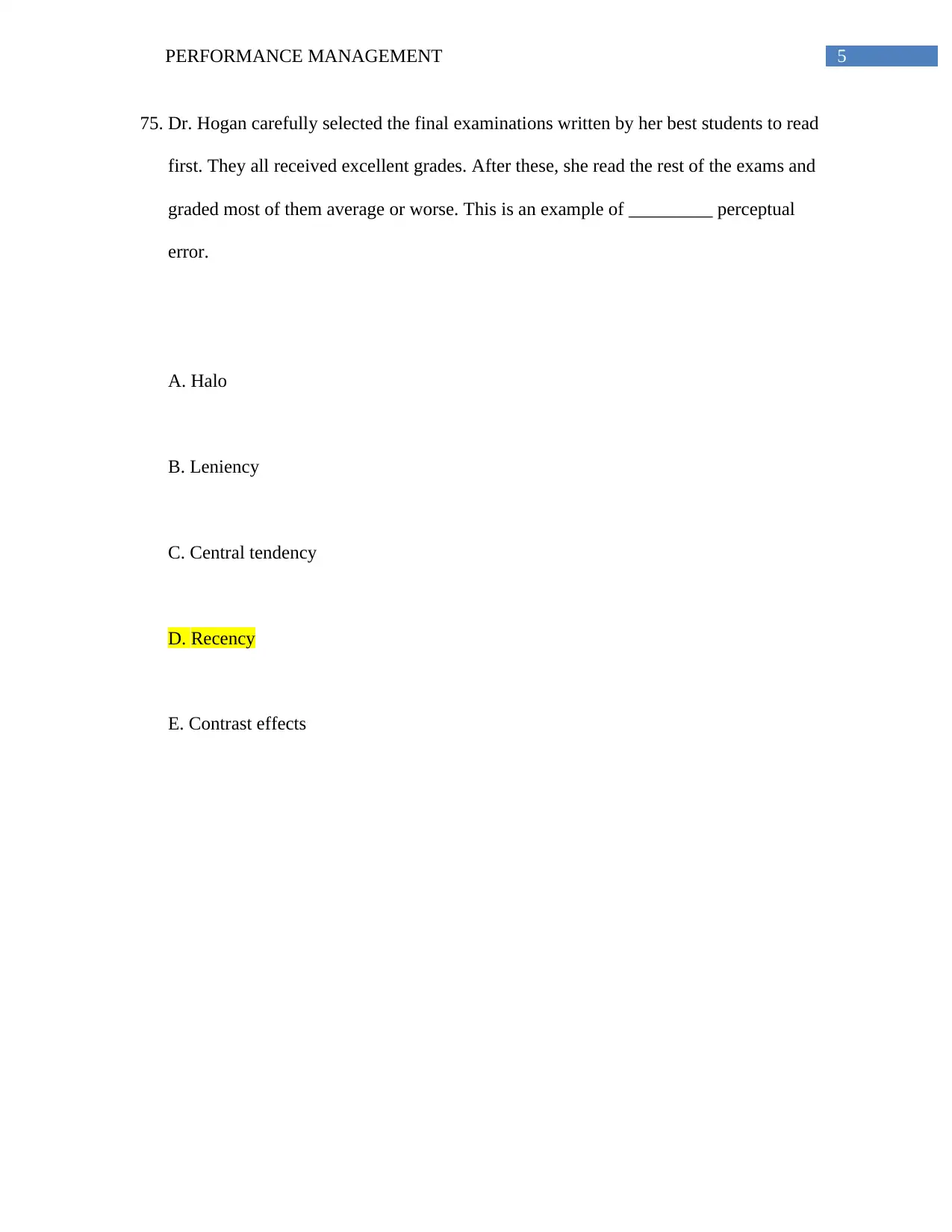
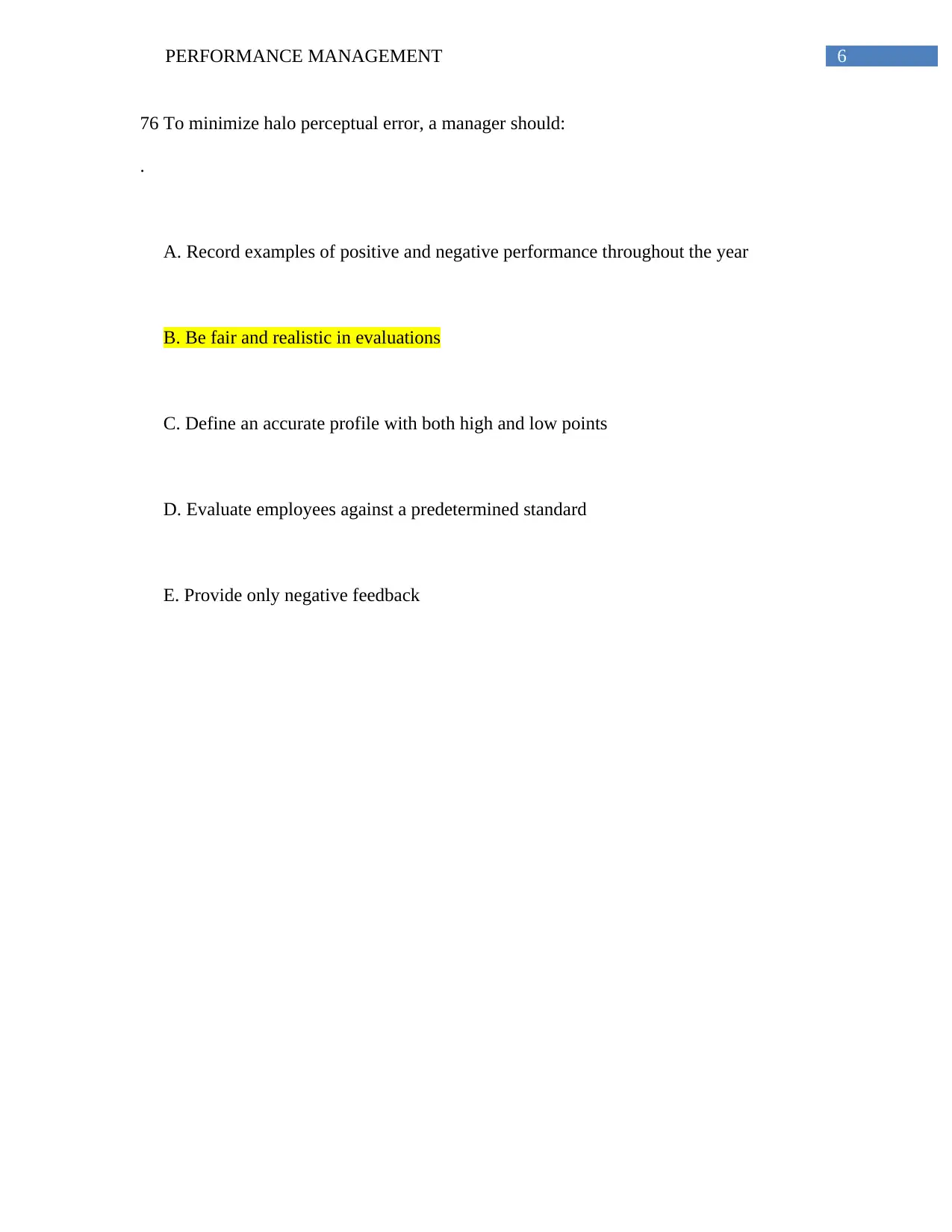
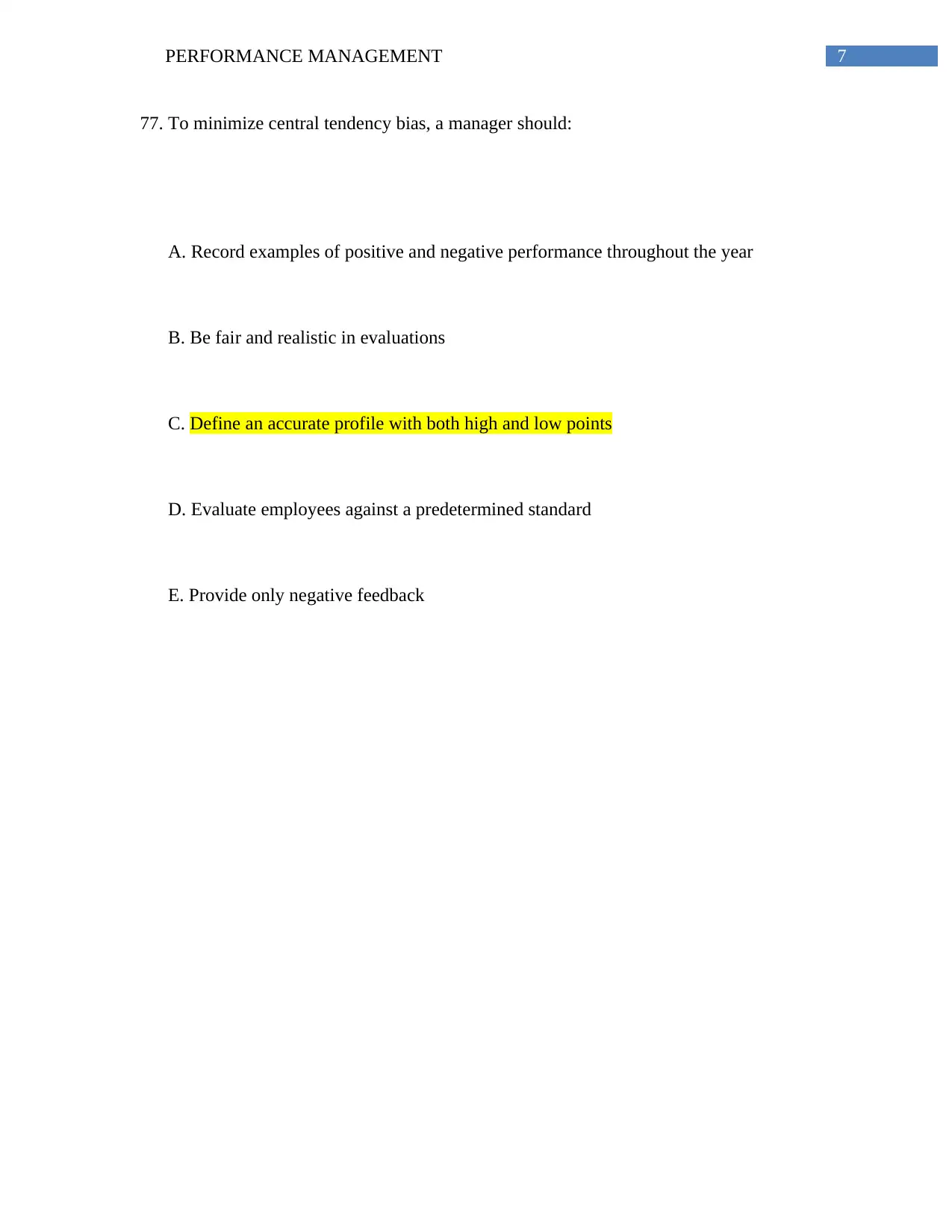
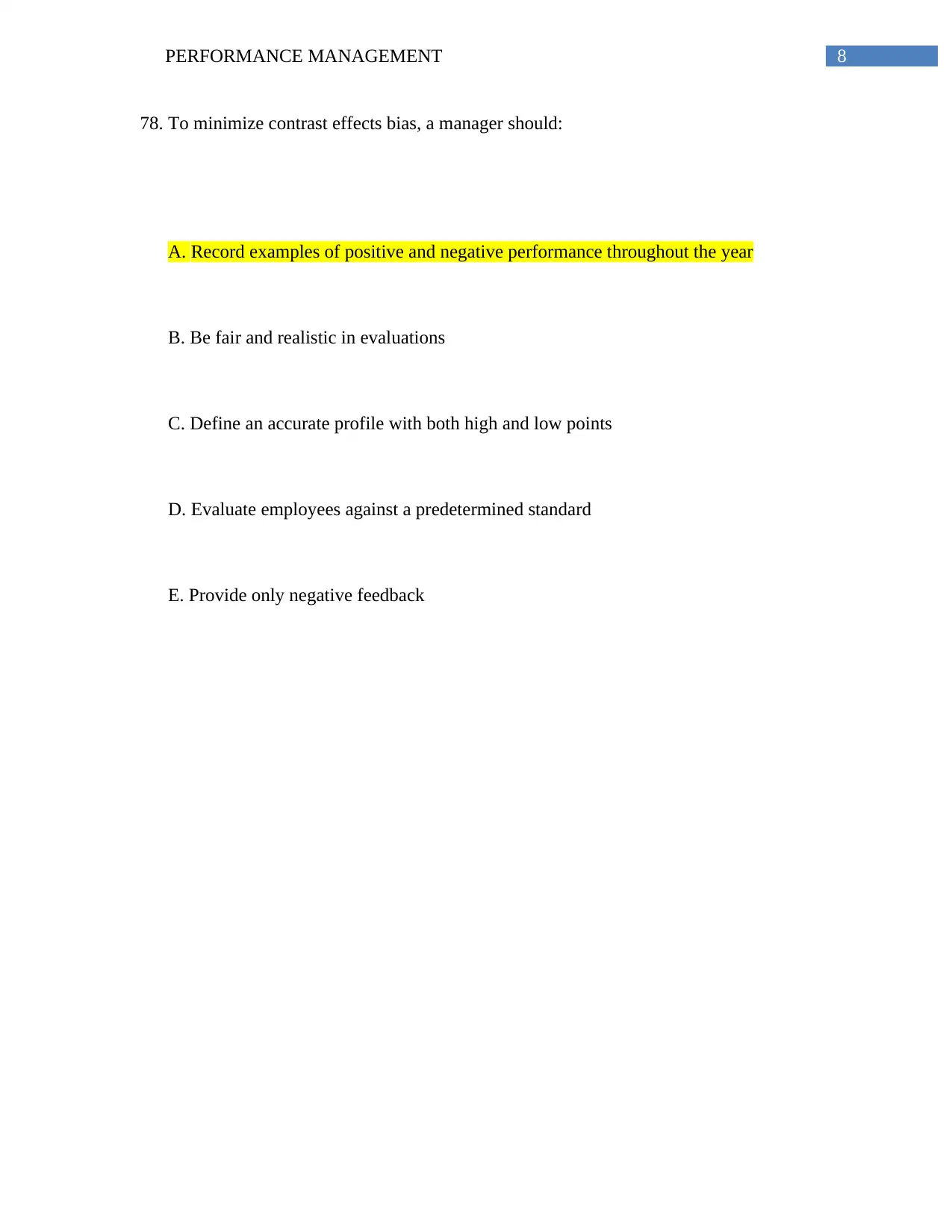
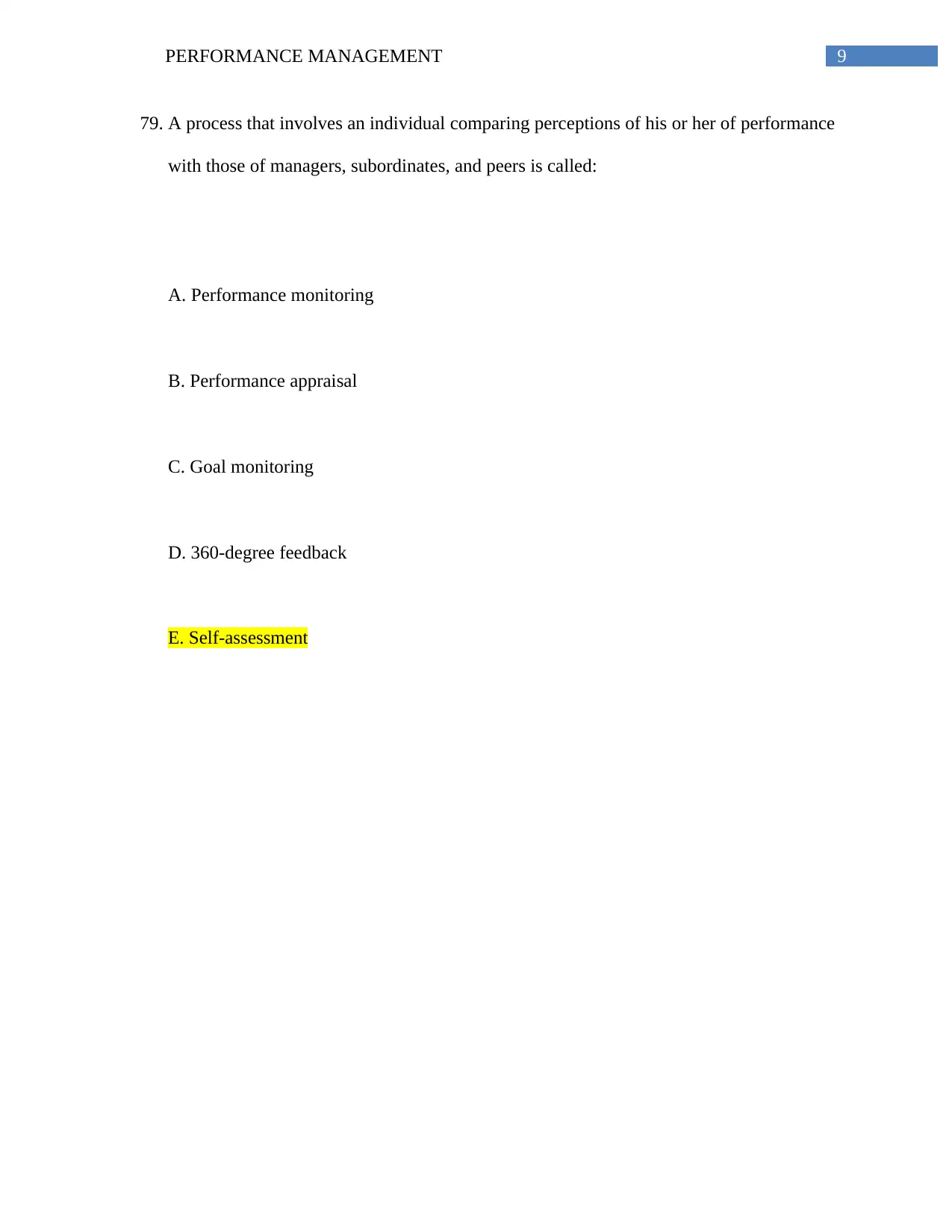



![[object Object]](/_next/static/media/star-bottom.7253800d.svg)